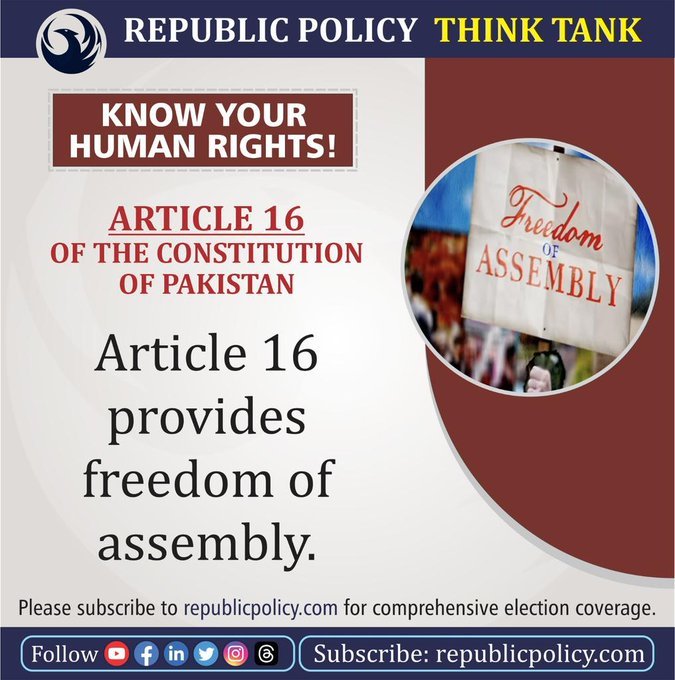Masood Khalid Khan
In Pakistan’s Constitution, Articles 8 to 28 enshrine the fundamental rights of citizens. Article 8 sets the guiding principle that no law inconsistent with these rights can remain in force. This is not just a legal clause—it is a constitutional promise that forms the basis of the relationship between the state and its people. Among these rights, the “Freedom of Assembly” under Article 16 holds a central place. It is not merely a civic convenience but a foundational tool for democratic growth and the preservation of social consciousness.
Follow Republic Policy Website
Freedom of assembly empowers citizens to express their views on state policies, present collective demands, and highlight their stance through peaceful protest. In democratic societies, it functions as a safety valve, allowing public anger and dissent to find a non-violent outlet that can lead to institutional reforms. Without this channel, political pressure and dissatisfaction often spread underground, eventually surfacing as social unrest or state repression.
Follow Republic Policy YouTube
In Pakistan, restrictions on this right are often justified on the grounds of “law and order.” However, the Constitution is clear: such restrictions are only acceptable when they are reasonable, necessary, and non-discriminatory. Targeting freedom of assembly based on political affiliation or opposition to government policies undermines the very spirit of the Constitution. This principle must apply equally to all political parties, as impartial protection of fundamental rights is the true measure of democracy.
Follow Republic Policy on X (Twitter)
A strong democratic state is one that tolerates dissent, provides space for it, and channels it into institutional dialogue. Limiting freedom of assembly may appear as a show of strength, but in reality, it signals a lack of confidence and institutional weakness. In a diverse federal society like Pakistan, this right is not only a symbol of individual liberty but also a guarantee of federal harmony and national unity.
Follow Republic Policy Facebook
The Constitution’s guarantee that no law repugnant to fundamental rights can stand serves as a constant reminder that democracy is more than periodic elections—it is the daily practice of giving every citizen the right to speak, gather, and demand accountability. Protecting freedom of assembly safeguards Pakistan’s status as a living, participatory democracy, ensuring that the voices of its people remain central to its governance.
















